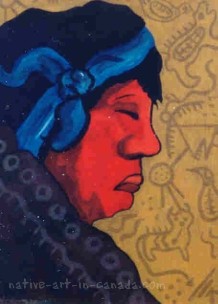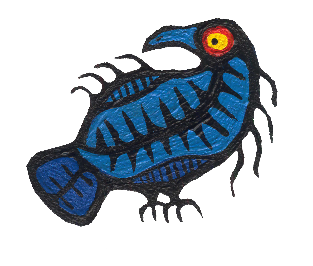Native-Art-in-Canada has affiliate relationships with some businesses and may receive a commission if readers choose to make a purchase.
- Home
- Ojibwa Elders
Ojibwa Elders
 "The Shaman" by Nokomis
"The Shaman" by NokomisElders are the teachers in the school of life. Their experience is
passed down from generation to generation through stories or by example. In your world you'll refer to them as grandmas and grandpas who can teach you how to make cookies, change a tire, console you when your heart is broken and suggest alternative past times other than playing games on a computer.
All older Ojibwa men and women are respected for what they know and the contributions they've made throughout their lives, but there's a special word that describes the elders whose responsibility it is to pass on the spiritual traditions. The word is chinshinabe. Not all elderly Ojibwa people are chinshinabe.
The chinshinabe are the traditional teachers who are the caretakers of Ojibwa culture and sacred knowledge. They have the responsibility to keep alive the spiritual wisdom that passes from one generation to the next by engaging in a visual, oral and intellectual exchange with the listener. The listener must be judged receptive to the information imparted. For that reason sharing the knowledge using the written word isn't done. There's no way to judge the reader's ability to comprehend and personally interpret what is spoken.
It isn't that traditional knowledge can't be shared . . . it's just that you can't hear it. You, dear reader, may simply be a child looking for an answer to a question posed by your school teacher. That's good because you're one of the reasons I've gone to the trouble of making this website. Or you may be a curious adult. What you are not is one of the Anishnabeg who has been on a life long quest to comprehend what it means to be.
I know you think there should be another word right after the verb "to be". You think it should answer the question "To be what?"
But being is different.
Think of Wayne Gretzky on the ice in control of the puck. He "is being" a hockey player.
Think of the fan sitting in the stands. He might be a fan and he might enjoy hockey, but he's not a hockey player.
To be in the conversation with a teacher of the traditional knowledge of the Ojibwa you must be seen to be engaged in being aware of yourself in relationship to how you are playing the game of life.
Hard for me to get that from where I'm sitting but I'm willling to share a brief distillation






